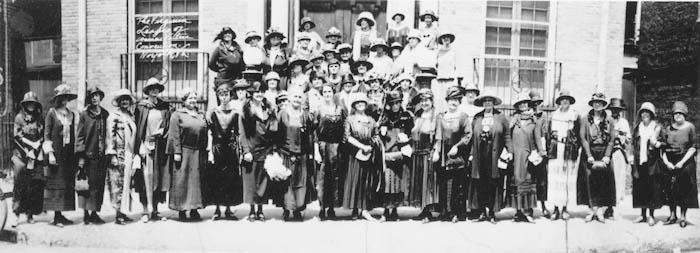
From ESL to League of Women Voters.
The ESL's road was never easy nor straightforward.
After the General Assembly defeated a state suffrage resolution for the
second time in 1916, and the ESL’s focus shifted to passage of a federal amendment, ESL membership increased from 9,662
to 16,000 in 1917, reaching 30,000 by 1920. Yet the league found it
very hard to gain the local public support it needed to wield real political impact.
In the face of conservative politics and embedded racial tensions
gripping the state in the early 20th century, the ESL failed to turn
public opinion far enough to win women's suffrage—that win was ensured only
by passage of the federal amendment. But even without General Assembly support, the
ESL's previous decade of work served
to educate many women (and men) on the importance of the vote.
It also spurred its members and supporters to broaden their
traditional roles and horizons by engaging the political system and
campaigning for progressive reforms. Women were encouraged to seek and
accept leadership roles in areas from where they had previously
been rejected.
The 19th Amendment to the U.S. Constitution passed in 1920 after
it was ratified by three quarters of all states—but
notably without Virginia and eight other southern states. All the same, Virginia women registered to
vote in large numbers (over 13,000 women registered for the 1920 elections in Richmond alone).
After the amendment passed, the ESL soon disbanded but re-formed as the League of Women Voters of
Virginia (LWV). The league’s convention delegates are shown here in Norfolk in an undated photo.
The LWV refocused its efforts on Virginia's ratification of the 19th Amendment—enacted 1952—and progressive reforms. Only three years after the
passage of the 19th Amendment, two women in 1923, Helen Timmons Henderson of Buchanan County and Sarah Lee
Fain of Norfolk (where she was a member of the LWV's Norfolk Chapter), were
elected to the General Assembly. As the descendant of the ESL, the LWV remains an active, non-partisan organization today, and in 2010, the House of Delegates and Senate of Virginia passed joint resolutions commending the LWV on 90 years of service and the “tireless efforts” of the ESL and the LWV to win women the vote.

